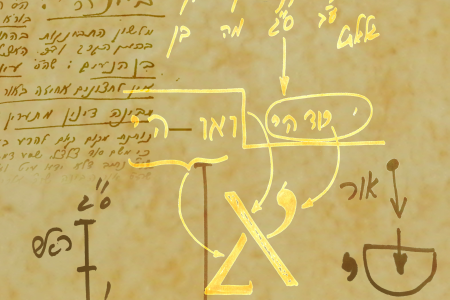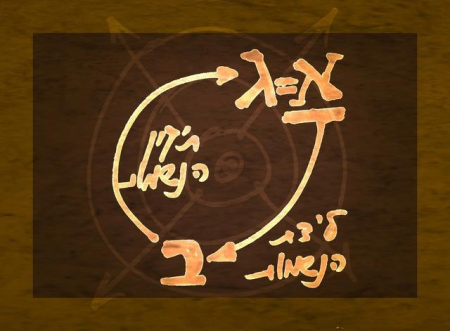Glossary of Terms Used in the Pinhas Weekly Torah Portion
- Covenant
- Everlasting Covenant
- Lot
- Family, the Family of Zelophehad, the Family of the Gershonites
- Changing
- Leader
Covenant
A covenant is the connection between the Creator and the creature. When people oppose one another, they are considered distant. The more alike they are, the closer they become. When they are similar in only one way, it is as though two circles begin to overlap. If they are completely equal, they are in a covenant, in unity. A covenant is unity. It is a match between the qualities of the creature and the qualities of the Creator. Achieving such a state makes a person similar to the Creator, and then that person is called Adam (man) from the word Domeh (similar).
Everlasting Covenant
An everlasting covenant is the one that the Creator had with Pinhas. It is a degree in which the quality that a person has acquired never disappears and never becomes corrupted.
Lot
A lot is the will to receive that has been corrected into working in order to bestow on a degree that does not disappear, and which does not need to be reacquired.
Family, the Family of Zelophehad, the Family of the Gershonites
The creature is only a single desire that was created, called “one soul.” That soul is divided into many interconnected parts, like cells in our bodies. Some cells are similar, close, helping and supporting one another, existing in wholeness and working in mutuality, in a special connection. These are called “family.”
These “cells” are parts of one soul that work among themselves in a special mutual work that is at the same time independent, like our children. We come from different areas and no one chooses anything, but it happens, according to the hierarchy by which we hang down through the worlds from above downward.
Changing
This is the next degree. Today a person is one way and tomorrow it is as though he is another way. He changes himself.
Leader
Each degree comprises ten Sefirot. Keter is the leader, the one who illuminates to all the degrees through Malchut, where the execution actually occurs. Keter has heads of tribes, hundreds, thousands, and so on, and in the end, the execution is in the people.


